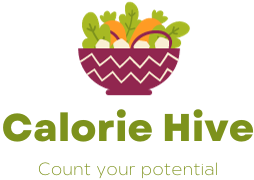First, I would like to give all women a pat for reaching the milestone of their pregnancy journey Congratulations We are pleased to have you here; I am sure that all mothers, especially new ones, must be planning what should be a Diet Plan for Babies II 0-12 Months.
Establishing a nutritious diet is one of the most important aspects of raising a healthy and happy baby. But with so much information out there, crafting the perfect diet plan for babies 0-12 months can feel daunting. Worry not, new parents! You are at the right place to ensure your little one gets all the essential nutrients they need to thrive in their first year.
What food should be Introduced first?
Diet Plan for Babies From 0-5 Months

Breast milk and baby formula are the most important during the first five months of a baby’s life. Breast milk and formula provide the best nutrition for babies at this age and provide the necessary nutrients to help them grow and thrive. Choose a formula fortified with iron and DHA, an omega-3 fatty acid crucial for brain development.
Anything else, such as solid foods, can interfere with the baby’s digestive system and cause health problems. Getting enough nutrition for your baby starts with eating well, and the healthier the diet, the better the nutritional milk your baby gets, and the better the nutrition your baby receives.
Breastfeeding also benefits babies and can help them build a robust immune system. Additionally, breast milk contains antibodies that can help protect babies from illnesses. Breastfeeding is also a great way to bond with the new baby and can help mothers with postpartum depression.
Remember: Whether breastfeeding or formula feeding, consult your pediatrician to ensure your baby is getting the right amount of milk throughout the day.
You may also like to read: How Many Calories in Baby Formula
Diet Plan for Babies From 5-6 Months
Begin introducing weaning practices with vegetables first. Why? Because vegetables have a mild taste, making it easy for babies to eat without causing disruptions to their digestive system, I get it.
Many moms have this issue where their babies have a sweet tooth, which is initially linked to introducing babies to sweet foods. By submitting vegetables first, babies are more likely to develop a taste for them and be less likely to be drawn to sweeter foods.
Additionally, vegetables contain a lot of fiber, which helps babies develop a healthy digestive system. Also, vegetables contain fiber, which helps regulate bowel movements and supports the development of a robust gut, which is essential for overall well-being.
Did you know that when porridge is too watery, it doesn’t have as many nutrients? To make it more nutritious, cook it until it’s thick enough not to run off the spoon.
Imagine yourself: If you have overeated something sweet, you will not go for something salty afterward. No matter how tasty food is, you may not crave it. The same phenomenon works for a child. This is what happens to the baby. If you feed the baby something sweet for the first time, the baby will not crave the salty one, which has a greater chance of your child becoming a picky eater.
What else can you add to the baby’s food in these months? There are multiple options to feed your baby. For example, Once you have introduced vegetables, add cereals to the diet, such as Semolina Dumplings, Tapioca Pearl Pudding, and Rice pudding, and later on, start with fruits. You can give any fruit; just ensure it is pure or liquid.
Your baby might find the taste of new foods surprising. Allow them time to adapt to these unfamiliar flavors. Exercise patience and avoid pressuring your baby to eat. Pay attention to cues indicating fullness, and cease feeding when those signs appear.

Diet Plan for Babies From 6-8 Months
Let’s discuss the food choices of a 6 to 8-month-old baby. The baby is now getting the mother’s milk and infant formula feed. Vegetables, cereals, and fruits have already been added.
What else can you add? You can begin giving yogurt to your children, a nutrient-rich food with vitamins and minerals essential for growth and development, without sugar or honey to your children. Straining the broth can also be helpful. Straining the broth helps remove excess fat and makes it easier for your baby to digest. I
f you are giving meat, make sure it has been mashed before cooking. You can feed softfood to your baby 2-3 times a day. Lentil soup can also be added to the diet. Lentil soup is also a great source of vitamins and minerals, and it contains protein that can help your baby grow.
Note: As your baby gets increasing amounts of solid foods, they should continue to get the same amount of breastmilk.
Diet Plan for Babies From 9-12 Months
This month, your baby has breastfed/formula feed, Vegetables, Cereals, Fruits, and Chicken yogurt. Is there anything else left? Well, at this time, babies can have cooked meat instead of mashed or broth form.
You can end your mashing hurdle in this stage and chop into small pieces instead and upto 3-4 times a day. Also, you can put eggs into your diet. Eggs are a great source of nutrition for your baby, as they contain vitamins and minerals. They are also high in protein, which can help your baby to grow and thrive.
Eggs are also a great source of essential fatty acids, which can help your baby’s brain and nervous system to develop correctly. They are also a good source of cholesterol, which is necessary for your baby’s growth and development.
Note If your baby refuses a new food or spits it out, don’t force it. Try again a few days later. You can also try mixing it with another food that your baby likes or squeezing a little breastmilk on top.
Foods to Avoid
When introducing solids, being mindful of what goes on your little one’s plate is crucial. What is the giant NO for all these foods mothers shouldn’t feed babies?
First is wheat-based products because, At this time, the baby’s body does not contain the enzymes that will make the wheat digestible, so there are high chances for a child to catch an allergy. Moreover, it is a dry fruit. Do not add nuts, whole eggs, citrus fruits, or juices.
The most important thing for which I have to stress a lot, even if I have to do a lot of counseling with older parents or grandparents, is the use of salt for children. All of you need to know that salt is not added to everything because the child’s palate is underdeveloped and does not know the taste of salt or sugar.
These two things cover the actual taste in your box. A child’s tongue palette will be strong only if you keep children away from sugar and salt. Because salt contains sodium, it is famously called “white poison,” and excessive amounts are harmful to people of all ages.
If there is hypertension or high blood pressure in your family, then you do not have to give salt to your child in any case. Another point is the exclusion of sugar. Sugar or honey should not be used because the first reason is that it can damage the child’s teeth and make the child hyperactive. Moreover certain bacteria in honey can make the baby sick. So it is important that you cannot feed honey to a child for one year
Fats are an essential source of calories and vitamins that a baby needs. If the child is given low-fat milk, curd, or any low-fat food, the child’s health will suffer directly or indirectly.
What to do if a Baby is Allergic?
Child is prone to get allergies Picture Breastfeeding is highly recommended if allergies, asthma, or eczema run in the family. I don’t think anything else can be more important than hygiene in your child’s life.
The first and foremost point is to wash your and your baby’s hands thoroughly with soap for about 20 seconds before and after preparing food. You should be cleaning the food surfaces where you are cooking or serving food so that no infection gets to the baby, especially your chopping board. Clean the bowl thoroughly with lukewarm water and soap and feed the baby.
Note: Allow for 3 to 5 days before introducing another new food to make sure your baby is not allergic or intolerant to these foods.
Diet Plans Ideas and Guidelines
Babies of 012 months require much attention to be given to their menu. It is important to remember that every baby will be unique, and try introducing the foods one at a time so that you can assess for any allergies or sensitivities. Here’s a sample menu for babies throughout the day:
Breakfast (6-8 months):
Pureed Fruits: Make them soft and easy to digest.
Iron-fortified Baby Cereal: At around six months old, start with iron-fortified rice or oat cereal blended with breast milk or formula for more nutrients.
Yogurt: Use plain whole-fat yogurt to promote healthy growth and development.
Breakfast (9-12 months):
Mashed Avocado: Spread ripe avocado on whole grain toast or serve it plain.
Soft-Cooked Egg: Serve soft-cooked and diced eggs for protein enhancement.
Whole Grain Porridge: Cook entire grain cereals, such as quinoa or millet, and then present them with mashed fruits.
Lunch (6-8 months):
Pureed Vegetables: Introduce purees such as sweet potatoes, peas, or carrots.
Mashed Beans: Add cooked beans like lentils or mashed chickpeas for more protein and fiber.
Ground Chicken or Turkey: For protein, offer finely ground and well-cooked chicken or turkey.
Lunch (9-12 months):
Steamed and Chopped Vegetables: Chop soft vegetables such as broccoli, zucchini, or carrots and cook with steam.
Mini Sandwiches: Make small sandwiches using thinly sliced, cooked chicken or turkey and soft whole-grain bread.
Cheese Cubes: Offer small cubes of mild cheese for a calcium boost.
Dinner (6-8 months):
Pureed Poultry or Fish: Introduce pureed chicken, turkey, or mild fish.
Mashed Sweet Potatoes: A delicious side would be mashed cooked sweet potatoes.
Rice or Pasta: Serve well-cooked rice or pasta for a different feel.
Dinner (9-12 months):
Soft Tofu Cubes: Offer soft tofu cubes for a vegetarian protein source.
Whole Grain Pasta with Tomato Sauce: Serve whole-grain pasta with tomato sauce.
Mixed Vegetable Puree: Mash a puree made of peas, spinach, and carrots.
You may also like to read: Infant Feeding Guidelines – Calorie Intake 0-12 Months
Remember These Golden Tips!
- Never consult a pediatrician before introducing new foods, especially if your baby has allergies.
- Begin with individual ingredients and then introduce combinations. Assists in determining any possible food sensitivities.
- Ensure your baby is hydrated by giving them water between meals.
- Make mealtimes fun and engaging! Sing to your baby, talk with them, and rejoice in her interest in food.
- Keep your baby’s food free of added sugars and salt. It doesn’t need their little kidneys and taste buds.
- Don’t force-feed. If the baby isn’t keen on a particular food, introduce that again after some days or weeks.
Bonus Tip: Purchase a good blender or food processor to make homemade baby food. It’s new and cheap, and where you have control over what’s in it.
If you stick to these recommendations and adjust them accordingly, a baby 0-12 months nutrition plan will be developed for your baby for whom it was created. Savor this fantastic journey of watching your tiny tot explore the beautiful world of food.
To Sum up With
0-5 Months place focus on breast milk or formula as the best nutrition for an infant’s optimal growth. 5-6 months, introducing vegetables becomes a life’s turning point, so we should avoid overly sweet food and create a love for healthy products. This not only ensures a robust immune system but also promotes diverse tastes.
6-8 months Further on, yogurt, strained broth, and protein sources such as mashed meat or lentil soup add to the nutritional spectrum. 9-12 Months is when cooked meat and eggs start to be introduced, bringing in vital nutrients for general growth.
Avoid wheat-based products, dry fruits, and certain foods like nuts, whole eggs, citrus fruit, and juices until the baby is 12 months old. Limiting salt and sugar intake to develop a robust palate is very important.
Hygiene is essential, mainly if allergies, asthma, or eczema occur in the family. Washing hands and food surfaces thoroughly and maintaining a clean feeding environment contribute to the baby’s good health.
Additional Resources:
- The American Academy of Pediatrics: https://www.healthychildren.org/English/healthy-living/nutrition/Pages/default.aspx
- The World Health Organization: https://www.who.int/news-room/fact-sheets/detail/infant-and-young-child-feeding
- The National Institutes of Health: https://www.ncbi.nlm.nih.gov/pmc/articles/PMC5104202/





